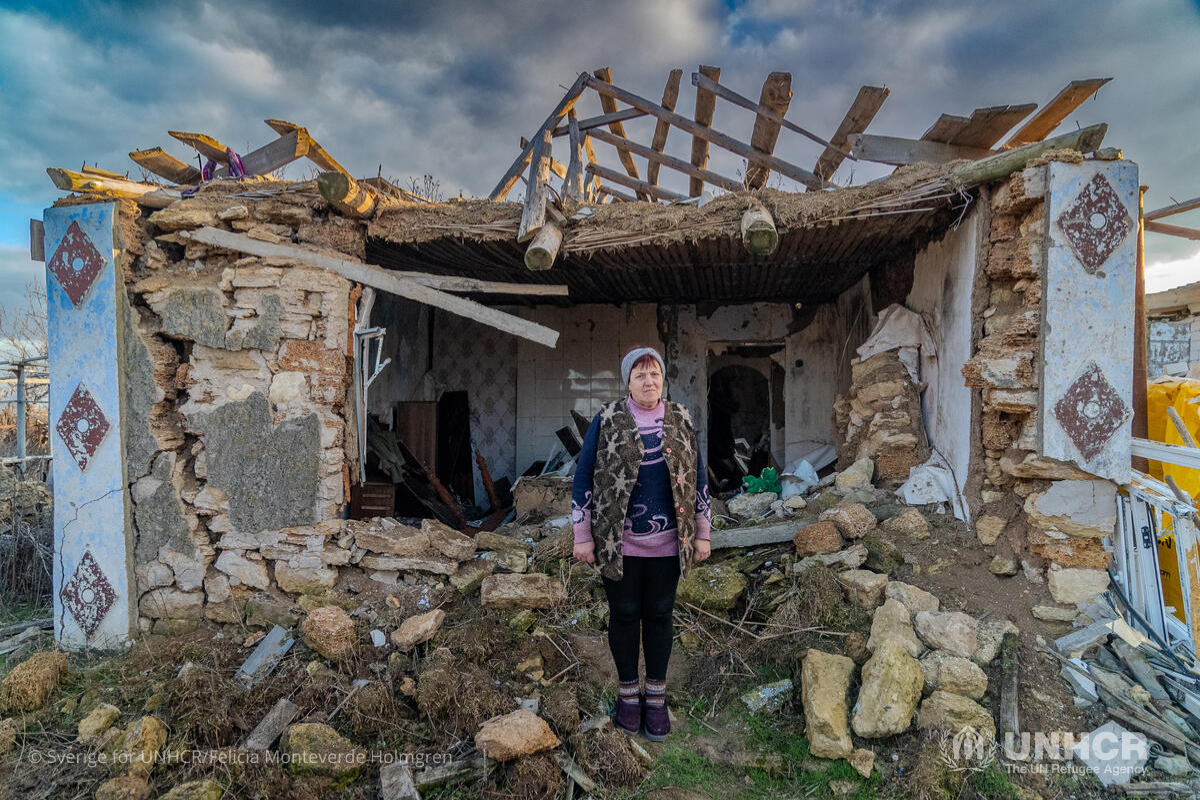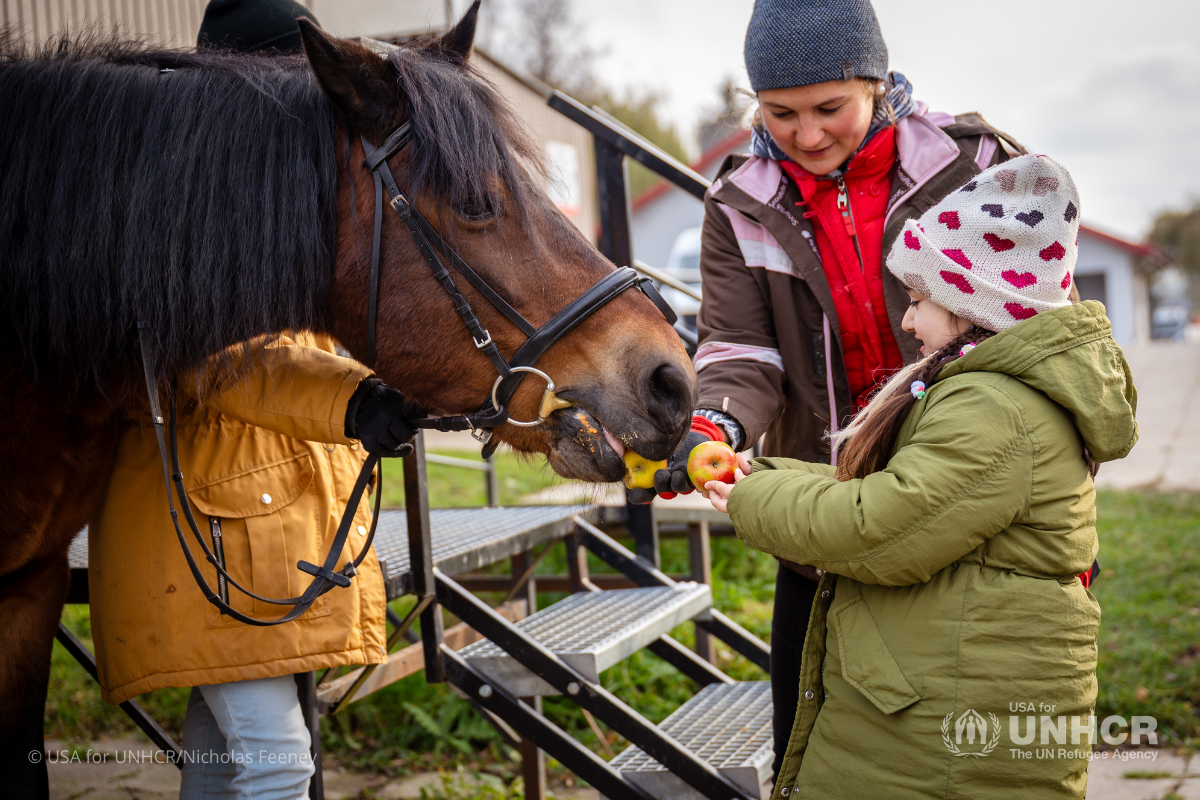Nepal Earthquake Q&A with Deepesh Das Shrestha

Deepesh Das Shrestha is Assistance External Relations Officer for UNHCR, the UN Refugee Agency, in Kathmandu, Nepal. Deepesh had been working for UNHCR for just over three months when the devastating 7.8 magnitude earthquake hit the country on April 25, 2015. UNHCR spoke with Deepesh during the first weeks of May about the destruction and UNHCR’s response.
Where were you when the earthquake hit? How did you feel and what happened?
It was Saturday and a public holiday in Nepal. I was in the living room with my three-year-old daughter Mrinal. It was around noontime and as the shaking started I felt a bit alert but not too worried. As it got more and more intense I realized that the shaking was an earthquake and I immediately got on the ground and covered my daughter tightly and just stayed on the floor hoping, waiting for the shaking to stop. My mother and wife were shouting “earthquake” and I yelled at them to lie down and cover their heads.
When it stopped we immediately ran outside and away from the house in case another aftershock brought it down. Everyone was out on the streets and everyone just looked terrified and panicked. Nobody knew what had happened or what was coming. My mind was blank.
Can you tell us about the destruction?
In the first few hours after the quake, we stayed out in open space. After about 3-4 hours, once I’d helped settle my family, I started to think about work and everyone else across the city. I live in Kathmandu and rumours were spreading. Everyone was talking about lots of people being killed. I wanted to go and have a look and find out what was happening as I knew that we could help. My family asked me not to go but they were safe and so I took my bike and went to the metropolitan and tourist areas and saw that things were in bad shape.
In the days that followed, the reports of destruction in other parts of the country began to reach us but so many areas are still inaccessible. There is a lot of work to do just to reach the hardest hit areas and we know that the people there will be the most in need of our help.
What are the challenges? What logistical difficulties is UNHCR facing?
The logistical challenges are immense here. Most people affected live in very remote areas and landslides have left roads blocked and many parts are still inaccessible. The rugged terrain of Nepal means it’s difficult to travel from one area to another at the best times. We were lucky to have supplies stationed through the country that could be diverted to the affected districts. The last distribution was delivered on five trucks and while travelling to one district, the road was so badly blocked by a landslide that the security forces accompanying UNHCR had to carry the consignment over on foot. The weather is also an issue. With bad weather, the chance of landslide increases.
Can you tell us about one person or family you have met and why their story touched you?
I met a woman and her two-month-old son in Bhaktapur city. Their home and every other house has been completely destroyed and they are now living in a communal tent outside their house. Around 60 people are crammed in one small tent. They don’t have proper food and there is no suitable place for them to stay. All her thoughts are just for her son though. She was breastfeeding him at this time of the quake and just made it from her home. At the moment, her biggest concerns are that her son will get sick without shelter. There are many stories like this and it was very painful to watch and see.
Why are you doing this? Why do you believe it’s important to help?
I cannot express in words how this quake has made me feel. Even now, days later, my mind turns blank when I think of what happened and I have to refocus. I remind myself of all that I am I doing, what I should be doing and that I have to keep going to get things done.
There are so many people who’ve been heavily affected by the quake, and working a t UNHCR gives us an opportunity to work for the welfare of everyone else. That’s what keeps me going day and night. I want to share their pain and struggle and perhaps do something that might make them feel a little better, make a little difference. Right now with this emergency, that’s what matter the most. We must work together to help those who need it. In the tough and busy times I have great satisfaction that UNHCR is actually helping.
I keep going because of the passion I have for the people who I know are in need. That’s what makes me carry on and keep going. At the end of the day, what matters most is if you are able to make some kind of difference.
How can a donation make a difference?
Your support is critical right now. Each and every person contributing, even small contributions can make a big difference to people’s lives. This is a massive emergency and there are so many people in need. People have lost everything – family members, property, there’s nowhere for them to go – Nepal will have to start again. Contributing right now will make a huge difference to the people of Nepal and allow UNHCR to support the most affected families. I hope people will remain engaged, keep us in their thoughts, and continue to give to help those who are affected.
A special thanks to our donors who have provided critical support to aid emergency relief efforts in Nepal and around the world.
This interview was conducted during the first few weeks of May 2015


